INDIES, YOU LIKE selling CBD. It can provide pets with relief from a wide variety of physical and mental health issues, through a growing range of hemp-type products. And these purchases become recurring as pet parents look to maintain positive results. But you may find that selling CBD has its challenges. Passage of the 2018 Farm Bill legalized growth of industrial hemp in the U.S., but certain state and local authorities still contest the sale of derived products. Add in the lack of Food and Drug Administration enforcement, and both retailer and consumer confusion continues to exist. While we await further government direction, there are areas in which industry experts and leading manufacturers can provide you with support. We asked them to do exactly that for five common challenges of selling hemp CBD products, as named by members of the PETS+ Brain Squad.
CHALLENGE 1. THERE ARE TOO MANY OPTIONS
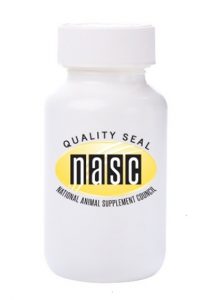
To carry the NASC seal, manufacturers must go through an in-depth audit that takes an average of three months. To carry the NASC seal, manufacturers must go through an in-depth audit that takes an average of three months.
“The CBD market has become oversaturated. I felt like every other booth at Global Pet Expo was a CBD product,” said Jamee Judson of City Bark in Detroit, MI, in our April Brain Squad survey. “It can be hard to figure out the best products when it seems everyone is trying to grab a hold of this trend.”
Bill Bookout, president of the non-profit National Animal Supplement Council (NASC), agrees.
“Quality is an issue that people should be concerned about. Right now, it’s kind of like a gold rush. Everybody wants in. So you’ve got all kinds of companies rushing to participate, with the best of intentions in most cases. But that also creates an opportunity for more opportunistic, less quality-minded suppliers to come in.”
He recommends factoring in NASC membership and audit status when evaluating brands. Of its more than 250 members, more than 80 sell CBD products.
“To join NASC, you can’t just call us, pay your money, join NASC and use the NASC seal. You have to pass a quality audit, but first your products have to fit under the scope of what we address and the company has to sign a written agreement saying they’re willing to follow our guidelines. Good manufacturing practice standards are a component of that. Adverse event reporting and continuous monitoring and vigilance are components of that. Having claims within regulatory allowable boundaries, either as dosage-form products or as animal nutritional products, are a component.
“With the audit process, we verify all of that. We go to the company. We do a physical inspection to make sure the company has written quality control processes. That what they’re doing is what’s written down, what’s written down is what they’re doing. That their data entry in our systems is all current and correct. We do audits of labels. It’s a very thorough process, auditing to known published standards, our NASC standards.”
Advertisement
Member companies are listed on nasc.cc, with those audited and approved to carry the NASC Quality Seal identified by a green check mark. To continue carrying the seal, companies must pass the audit every two years, maintain compliance with NASC standards and pass random independent product testing to ensure they meet label claims.
Among the companies that carry the NASC seal are Animal Essentials, Bixbi, Charlotte’s Web, Earth Animal, Green Coast Pet, Grizzly Pet Products, HempVet, Honest Paws, Rush Direct, Rx Vitamins, Silver Lining Herbs, Stratford Animal Health,
Therabis, Treatibles, Vet Worthy and Wholistic Pet Organics.
“Not only are we longtime members of the NASC, we have earned and now proudly feature the NASC seal on our product labels,” Julianna Carella, founder and CEO of Treatibles, says.
NASC members without the check mark may be in varying stages of the auditing process.
CHALLENGE 2. EDUCATING STAFF AND CUSTOMERS
“Educating customers is our biggest challenge. Also, as a retailer, support from suppliers with education is important. If the supplier won’t help educate us on why their product is different from others on the market, it can be difficult to sell,” said Brain Squad member Elaina Stanley of Three Happy Hounds in Fernley, NV.
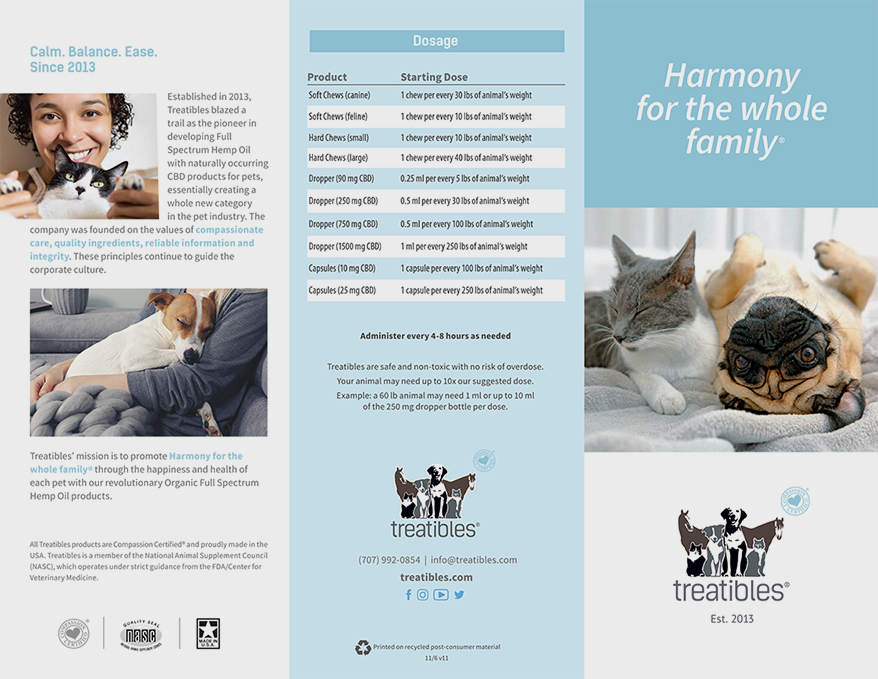
Treatibles provides retailers a variety of educational brochures to share with their CBD customers.
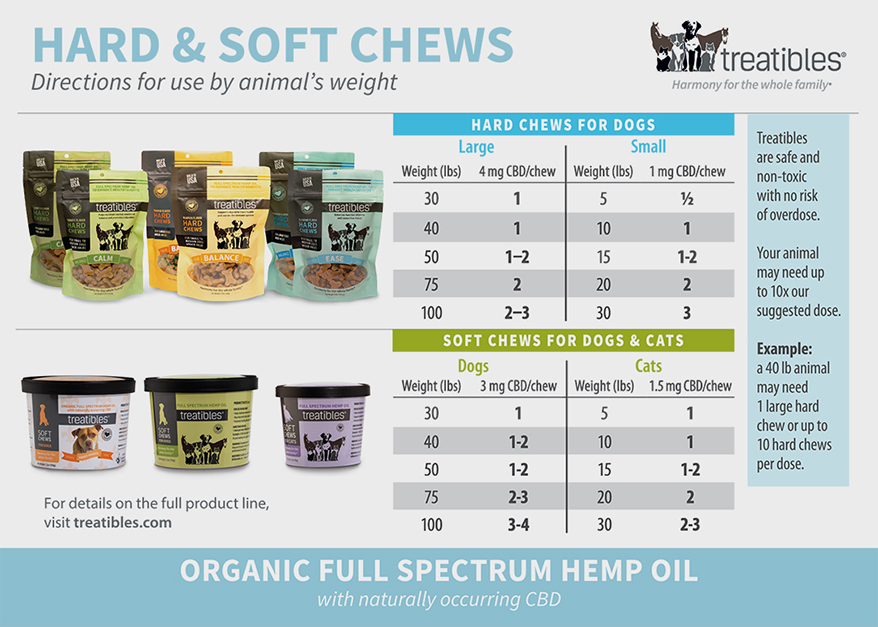
Carella shares how Treatibles helps its retailer partners in this area.
“There is so much information floating around about full-spectrum hemp oil with naturally occurring CBD products for pets, that separating fact from fiction is an ongoing endeavor. That is why we continue to offer weekly interactive webinars for retailers and their staff. We provide the most up-to-date information on everything from regulations to legal advances, scientific studies, our products and a whole lot more.
“Additionally, we provide our retailers with collateral pieces that help educate both them and their customers. This includes shelf-talkers, a dosage chart, pocket guide, brochures and posters. During store visits, Treatibles sales representatives and ambassadors share new information, answer questions, offer marketing tips to help drive sales. We also make every effort to offer in-store demonstrations and take part in special store events.”
Super Snouts co-founder Christy Love says they also break down the science.
“We offer a full training called ‘What the Hemp?’ for staff and customers that not only covers our product brand, but also the history of hemp and CBD, how it works physiologically, the endocannabinoid system, the science of innovation in new (and better bioavailability) delivery methods, where we are now, and where it’s headed.”
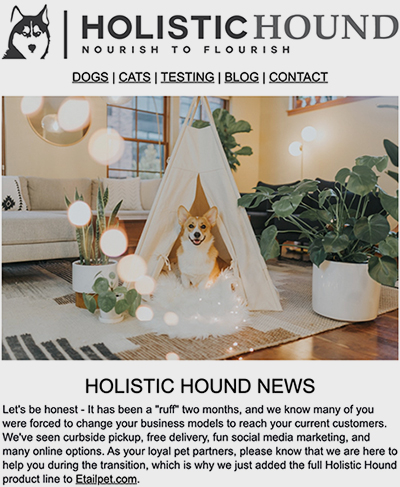
Holistic Hound offers two webinars each month and promotes the replays in its monthly newsletter to retailers.
She also appears as a guest on retailer webinars.
Honest Paws enlists veterinarians in its educational efforts, which can be a selling point in areas where hemp CBD meets resistance from the veterinary community.
“Honest Paws Academy is a thorough video series that educates team members and retailers about CBD for pets. For customers, we offer product guides as well as a library of content by veterinary writers,” co-founder Chelsea Rivera explains.
Through its online education program for staff, Holistic Hound offers webinars, quizzes with prizes, newsletters and live training.
“We are also partnering with our retailers to offer educational webinars on Zoom and Facebook, so their customers can learn about the benefits of CBD, CBG and medicinal mushrooms,” marketing manager Courtney Lane says. “This is a great way for customers to get product recommendations directly from Holistic Hound.”

Austin and Kat founder Kat Donatello hosts the company’s “Coffee with Kat” online training.
“We also recently started partnering with stores to do Instagram Q&A’s where we invite customers to ask questions and learn more about CBD,” she shares.
And in addition to its training program, TropiCBD offers support in an increasingly complex area.
“Our newest program supports advertising and marketing efforts for independent stores by giving them access to our marketing team to help improve overall sales at the store with approved language and accurate claims,” company vice president of sales Andrew James says.

Christy Love (top right) and Tammy Deering of Super Snouts appear on ‘In the Kitchen’ with Jeff Jensen of Four Muddy Pvaws.
CHALLENGE 3. COMPETITION FROM BIG-BOX AND GROCERY STORES
As hemp CBD for people and pets became more mainstream, it was only a matter of time before large chains began carrying products. The NASC’s Bookout points to education and pet-specific recommendations as keys to overcoming this challenge.
“Specialty retailers have to ask how they can differentiate themselves. Be informed and educated — that’s a differentiator. You’re not going to get that same level of education or confirmation from somebody who has been educated by Dr. Google,” he says of employees in grocery stores and the like.
“You want the customer to look to you as a resource. You want to have that customer, that pet owner, come in and ask you questions. They’re coming in so you can help them make a better-informed decision. You want to recommend the product that you feel is going to maximize the outcome, and the customer is going to achieve that benefit, their pet is going to respond as they anticipate. You want the customer to be happy with your recommendation, buy it again, leverage the visit to buy other stuff, and tell their friends so you create a new customer stream.”
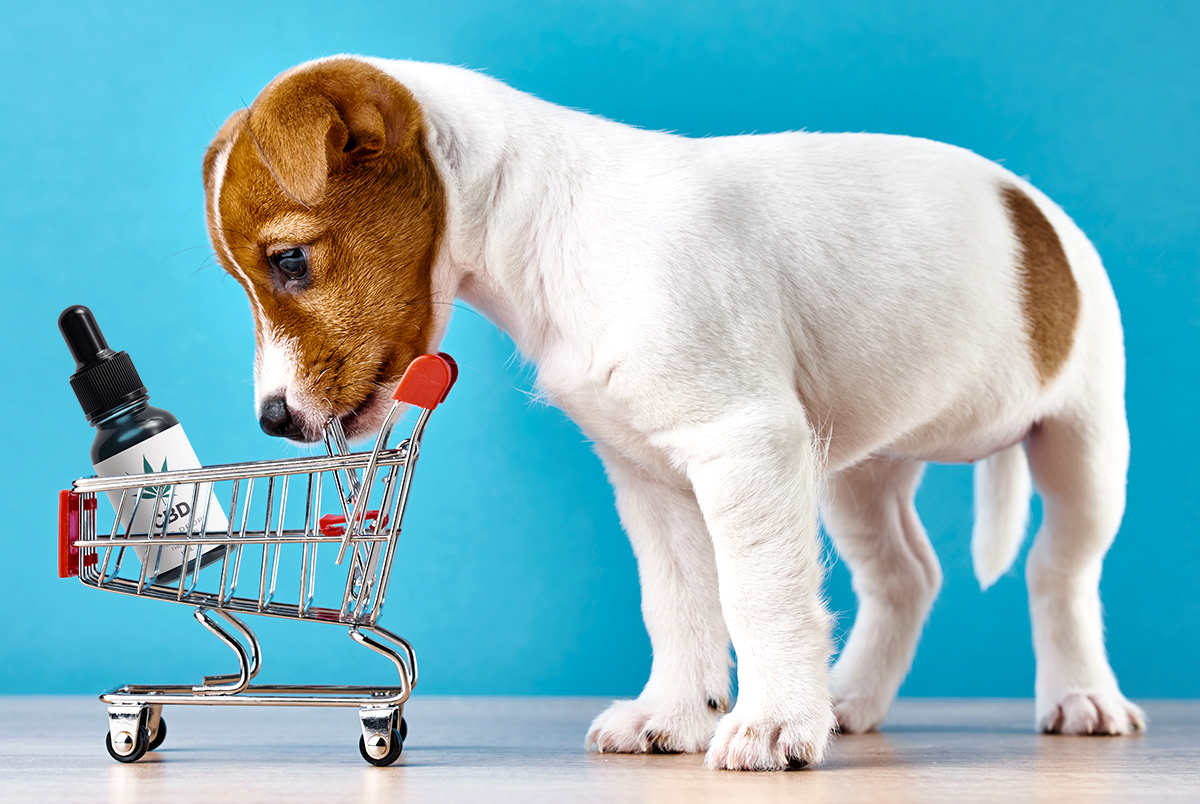
This advice also applies to competing with CBD stores that cater to humans but also have a few products for pets. When naming this challenge in our survey, Ramie Gulyas of Follow Your Nose in Evanston, IL, pointed out: Those customers do not know as much about quality or dosing appropriate to their pets, and those stores don’t know either.”
Opting for CBD hemp brands exclusive to independents will eliminate price competition with large chains on the same product. Austin and Kat, Colorado Hemp Honey, Healthy Hemp, Holistic Hound, Honest Paws, Lord Jameson, Super Snouts, Treatibles and TropiCBD are among the brands that remain loyal to indies.
Certain companies also try to send customers away from their online stores and to brick-and-mortar partners.
“We protect our independent retailers by directing consumers into the retail stores in their area. If there is no one in the location, we allow them to purchase from our site at a higher price, so that when a retailer in their area brings on Rover’s Pet, the retailer is the hero at a lower price and the consumer saves on shipping,” co-founder RaChelle Lobre explains. “It makes it worth the trip for the consumer and a win-win for everyone.”

CHALLENGE 4. PRICE IS AN ISSUE FOR CERTAIN PET PARENTS
Many members of the PETS+ Brain Squad named this challenge of selling hemp CBD, but they also shared how they overcome it.
Nancy Okun of Cats n Dogs in Port Charlotte, FL, said, “We provide free samples. For holidays such as July 4th and New Year’s Eve, we offer discounts. For summer with daily thunderstorms, we do Buy 1 CBD Oil, Get a Bag of Treats 25% Off.”
Victoria Park of Park Pet Supply, in Atlanta, GA, pointed out the value of loyalty programs when talking to customers about price.
“Astro Loyalty has been a great way to do promotions of Pet Releaf, and the frequent buyer program is a huge boost to sales.”
Advertisement
Colorado Hemp Honey plans to roll out its Astro Loyalty program in June. Nick French, co-founder of the company, says, “We will be offering a frequent buyer option for customers who purchase our Colorado Hemp Honey Jars.”
Austin and Kat, Healthy Hemp, Holistic Hound, Super Snouts and TROPICBD, among others, also use Astro Loyalty, allowing retailers to reward pet parents with savings.
Carella praises Astro’s ease of use and adds that Treatibles also “participates in programs with retailers that have developed their own discount program as an alternative to Astro Loyalty.”
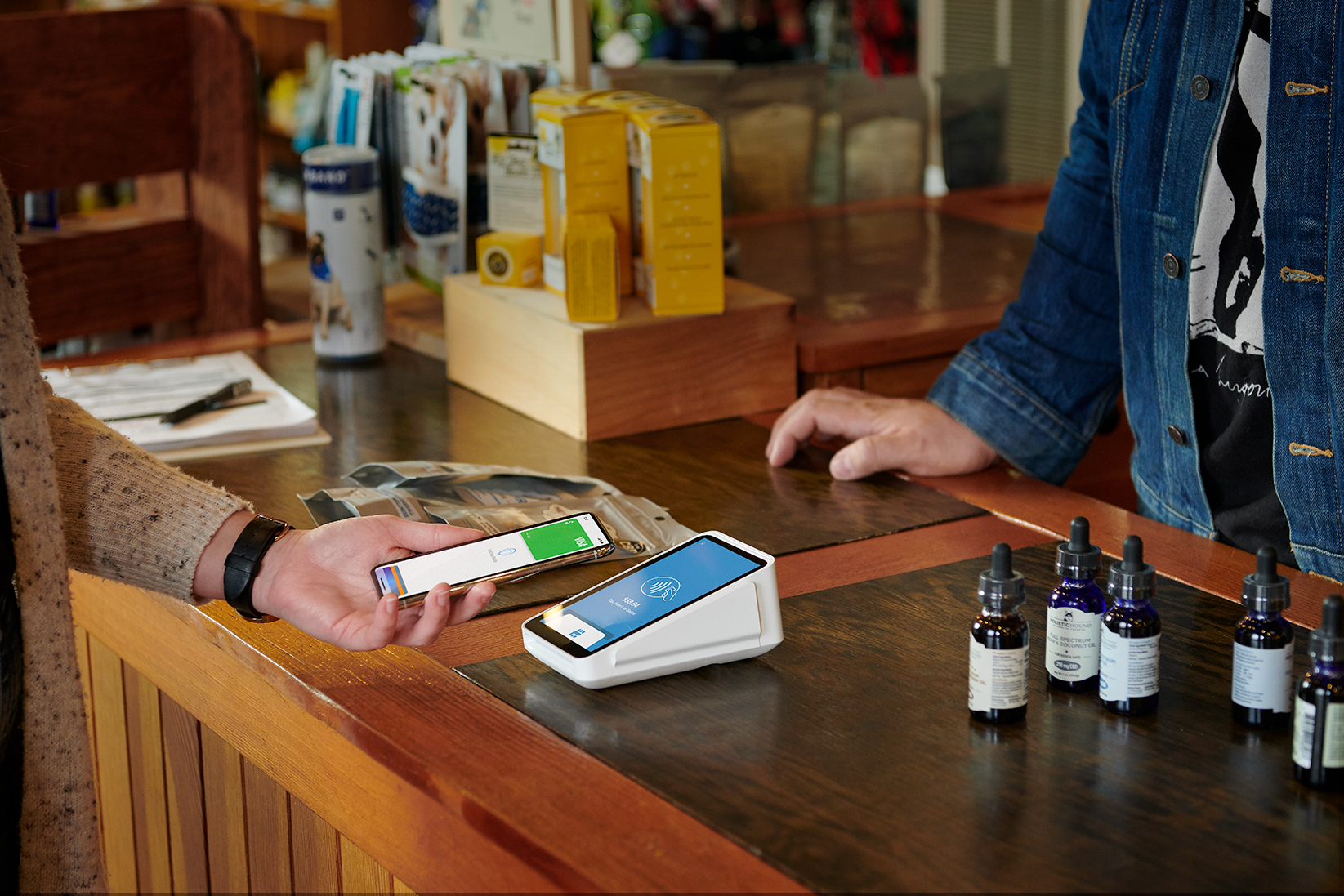
CHALLENGE 5. CREDIT CARD PROCESSORS THAT DO NOT ALLOW CBD SALES
Our Brain Squad members were most frustrated by this challenge, noting a lack of clarity from certain processors and resulting problems with hemp CBD sales online.
To support retailers who sell these products, Square introduced its CBD Early Access Program in October of 2019.
“Leading up to Square launching a program, we talked to sellers to understand the struggles, and then we built a solution for them. One seller lost five credit card processors before joining our program. Once they were cut off in the middle of a business day,” Square CBD Program Manager Sean McClain says.
Advertisement
All existing and future Square customers must apply to the program and be approved before selling CBD products with less than 0.3 percent THC. The process takes around two weeks. Among the criteria retailers must meet are descriptions and marketing that follow government and other relevant guidelines.
“We work with sellers to guide them through the process, help them stay aligned with the FDA and FTC regulations,” McClain says. “We’re trying to cut out some of the confusion and simplify the process. The last thing sellers want to worry about are all of these details.”
Processing rates are higher for sales of hemp-derived CBD products. Currently, Square offers its CBD program in all states except Idaho and South Dakota.